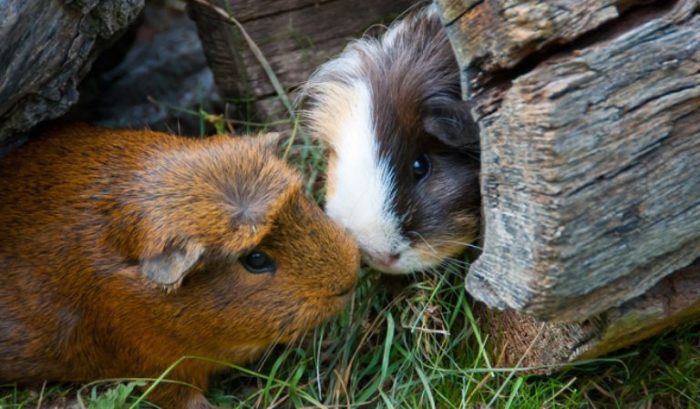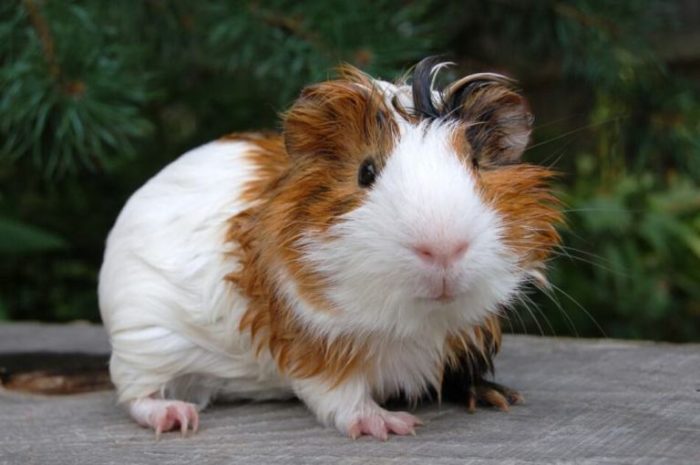If you own one of these cuties, you must have asked questions like is my guinea pig happy, what do I do to make it happy? Sometimes, pet parents who keep guinea pigs would wonder whether they have provided their furry companion with the necessary things to guarantee a happy life. Many keepers of piggies have absolutely no idea how to decipher if their pets are happy or sad since the animals cannot be decoded by merely looking at them.
One thing we should bear in mind is that the wellbeing and general health of a guinea pig is a pivotal point for its happiness. For a guinea pig to be in tip-top condition, then, keepers must take care of essentials like their diet, hygiene, comfortable dwellings, and many more.
Table of Contents
Is My Guinea Pig Happy? How To Know If Your Piggy Is Properly Taken Care Of
Naturally, guinea pigs are social creatures that display a wide array of behavioral expressions. People who keep these furries as family pets should make a conscious effort to learn the correct interpretation of these behaviors; this is sure to make for a better relationship between the piggy and owner. Below is a comprehensive guide for some guinea pig behavioral patterns and the possible explanations behind such sounds or behavior.
Active Guinea Pig
An active guinea pig is a healthy guinea pig and healthy guinea pigs are often happy. Your furry friend getting excited, running around, and coming up to greet you is a clear indication that they have sufficient energy for vigorous activities.
Wheeking
The wheeking sound is comparable to the sound that emanates from the knife and cutting boards as you chop your veggies or open a bag of chips. Guinea pigs make this sound when they are excited and expectant, perhaps they cited some yummy food or they want to get their owner’s attention.
High-pitched squeal
The high-pitched squealing sound is comparable to whistling and is evident when your furry friend wants to play or is just happy. Feeding time can also trigger such sound as they love their meals so much.
Deep, Calm, and Relaxed Purr
The guinea pig’s purring sound is akin to what you get from the felines. It comes out like a quiet grunt, depicting comfort and contentment.
Popcorning
There is something called popcorning among the guinea pigs, it happens when the furries jump into the air. This behavior makes them resemble a popping corn kernel, hence, the name. Popcorning can only happen when a guinea pig is in an excited state and it is more common among the younger ones as their body weights are lighter. These guinea pigs are likely to hop higher and are much more visible than the adults.
Nose rubbing

In a multi-guinea pig cage, you will observe them occasionally rubbing their noses against one another; this indicates happiness and friendliness. They can also show affection by licking their owner.
Socializing
Guinea pigs are classified among the social creatures as they love interacting with humans and other piggies. On their own, they approach their owners for greetings and familiarizations and also approach their housemates. This is a sign that they are healthy and want to socialize, they just love to make their presence felt.
Chilling out
Another indication that your guinea pig is happy is if it often stretches out or lies down on its fleece. The “lying down” part is quite easy but the “stretching out” may take a while. The piggies would usually stand stiff and still before going to rest their heads close to the floor, then comes the chill-out!
Stretching and yawning is something that these piggies do during their lap time to show how happy they are.
Licking
When a guinea pig is happy, it would share such happiness in several ways and licking is one of them. In the same way, a cat does, a happy piggy licks your hand to show happiness.
Chutting
This sound is quite rare but has been evident among young guinea pigs under the age of two, especially during lap time. These piggies only take to chutting when they come out of their cage to explore their room.
How Do You Know Your Guinea Pig Is Not Happy?
When a pet owner has a good understanding of his guinea pig’s mannerisms, it equips him to know when they are in a good or bad mood. Some of the behaviors indicating bad mood in guinea pigs include ;
Aggressive Behavior
This kind of communication is expressed whenever your furry companion tries to stand on its two hind limbs. This movement is usually accompanied by other tale-tale signs like chattering and hissing sounds, fluffing out their coat, teeth-baring, moving from one side to the other on their hind limbs.
Fidgeting or Freezing
Guinea pigs tend to freeze to fidget when they harbor fear, are anxious, or uncomfortable. This is when they will likely emit the dry sound which is the piggies’ version of human expressions “wow“ or “Ah“. When this sound is made, something must have disturbed the furball and the result is that the guinea pig will freeze in place.
Depression Or Stress
A stressed or depressed piggy won’t be its normal vibrant self as it will lose appetite, leading to loss of energy. The signs include reclusiveness and irritability. All these mean that your furry friend is unhappy.
Read Also: Guinea Pig Sneezing: Causes And What You Need To Know
Tossing The Head
When a piggy wants to be left completely alone, it indicates this by tossing its head in the air. When your furry does this, it means “hands-off, no petting”.
Chutter
The chutter sound is an indication of mild unhappiness in guinea pigs and owners might need to be cautious. This may be caused by the presence of another piggy or any other thing. The chutter sound may mean that your furry friend doesn’t want to be bothered. Sometimes, the sound is followed by a whine.
Chirrup
The chirrup sound indicates that your piggy is disturbed or mildly upset. They emit this sound when they are bothered about something. It can also be used as an attention-getter, especially when your piggies feel neglected and might love to get your attention.
Squeal
A guinea pig that is going through potential pain may likely squeal. Always check up on your furry friends whenever the squealing sound is heard as the piggies may be in need of help from something hurtful. However, it might just be that another piggy is stealing its favorite eating spot.
